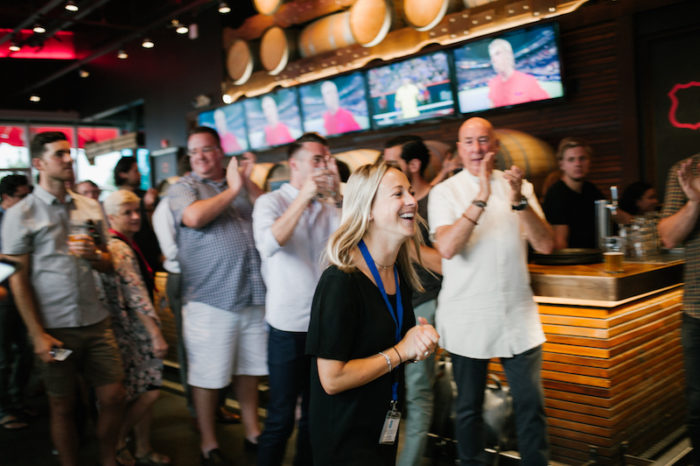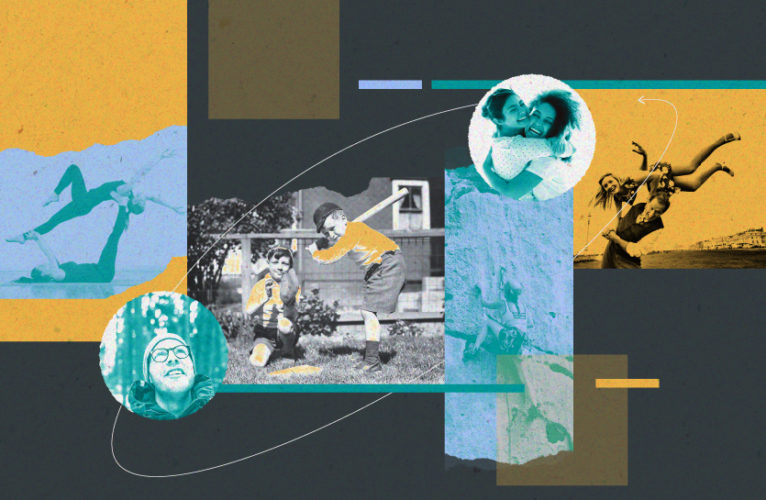Why Canadians are building charity networks
October 14, 2021
8 min read
Giving together builds connections and helps communities through collective charity.
Research has shown giving is contagious. Said otherwise, people giving unitedly can invite and empower the generosity in each of us. Science has also shown positive experiences associated with giving inspire you to give more.
Enter giving clubs, joining individuals to celebrate and share in giving. The atmosphere encourages personal philanthropy and more consistent charitable giving. These non-exclusive clubs bring the added benefits of expanding networks and building stronger relationships within cities and communities.
In Charitable Impact’s HQ city of Vancouver, a chapter of Give a Damn aims “to make a greater impact together than we could do on our own.” The group typically meets once every three months. (Unfortunately, the pandemic has prevented in-person events from happening.)
How it works: For each event, every member or attendee brings $100 to add to the pot for charity. Local charities come to share their missions and pitch programs. The group then votes on who gets the bulk of the evening’s donation, but all three featured charities walk away with contributions. So far, Give a Damn Vancouver has raised over $250K for local charities.
“My whole intent around starting Give a Damn Vancouver was to make charitable giving more accessible to people in my generation,” said Founder Martin McNish, who is also a financial advisor. “When we think about philanthropy or when people talk about philanthropy, it’s a game played by the ultrarich or ‘that’s something I am going to do when I am older.’”

A global movement
McNish has heard of similar groups in other cities and thought it was important to bring the altruistic movement to his own. “There is this feeling in the air at the end of an event like we really banded together and made a difference. That is an element that’s really hard to come by or even manufacture in [a big city like Vancouver],” he said.
From a broader view, giving clubs can be seen as part of a larger trend towards more collective and individually empowering giving.
The first 100 Women Who Care Group launched in Jackson, Michigan, in 2006. In their initial meeting, they raised enough to buy 300 new baby cribs for a local organization. Since then the concept has taken off, with the first Canadian chapter landing in Toronto in 2012.
Chapters of 100 Men/Women Who Care, 100 Kids Who Care, 100 Businesses Who Care, and even 100 Women Who Give a Hoot have sprouted in places across North America and the world. It should be noted that membership numbers are not actually limited to the namesake number.
A vibe of collaboration and connection
Like Give a Damn Vancouver, 100 Women Who Care Vancouver (welcoming to self-identifying women and to men) also meets four times per year (now virtually) and has given tens of thousands of dollars to charities.
“We are a fun, open, and accepting group driven by a mission to make change for our city. We are always looking for new members and are hoping to see faces in person soon,” said Jill Doctoroff, Executive Member of 100 Women Who Care Vancouver.
“Driven by a mission to make change in our city.”
“The vibe at our in-person meetings—which we are hoping will return soon—is one of collaboration, networking, and discovery,” added Doctoroff. “It’s a totally different feeling than giving online or in response to a fundraising request because you can chat with a representative from the charity. You can connect with and learn more about charities working in communities in our city.”
McNish echoes that personal engagement with charity is levelled up at friendly and lively giving circle events. “When we are getting together [and] charities come to speak directly to us, it makes the message feel much more personal than going on a charity’s website or even watching a YouTube video.”

Redefining philanthropy
Making giving more accessible can inspire more people identify themselves as philanthropists—or even redefine the term. McNish says millennials may not have accumulated the wealth to make donations in the hundreds of thousands of dollars. Still, younger generations can make a difference.
Give a Damn members sometimes follow up to events by reaching out to charities, becoming volunteers, or getting otherwise involved in their communities.
Lives become more fulfilling and well-rounded, says McNish. “The best, biggest moment of each event is when the previous charity comes back and communicates the impact of our donation. You can see the whites in people’s eyes. You can see in real-time that they are having that feeling like what we are doing here is making a difference,” said McNish.
“You can see the whites in people’s eyes.”
A platform for giving together
Give a Damn Vancouver and 100 Women Who Care Vancouver have both adopted the Charitable Impact platform as their go-to means of accepting and disbursing donations. As a result, they no longer need to request cheques or cash from attendees.
Individual contributions can go straight into an online platform, where they are easily distributed to any registered Canadian charity. Donors receive an immediate tax receipt for their contributions and can access generous tax credits.
“Charitable Impact makes processing donations on behalf of 100 Women Who Care Vancouver more convenient and manageable. In the past, we used to accept cheques or online donations directly to the charity, and organizing that can be time-consuming. With Charitable Impact, all our members’ donations are centralized in one place,” said Doctoroff.
You can start your own Giving Group on Charitable Impact to rally your friends, family, and colleagues around generosity or a particular cause. Multiple people can combine forces and pool funds to raise money to support one or more registered Canadian charities. Allocating to charity can happen when you feel ready (say, after a group vote). Reach out to us for any support in getting started.
How can you be part of a generosity movement?
Here are a few ways to get involved:
- If you are thinking of joining a giving club, reach out to a local chapter in your community
- Start your own giving club (and give it a catchy name). Find out how to empower your club with Charitable Impact.
- Start a Giving Group on Charitable Impact to rally friends around a cause you care about.
- Raise money in a Giving Group, then decide later what is the most important cause to support.
Taking a more collective approach to giving can mean simply talking to your friends and family about the causes they feel strongly about. Someone might just inspire you. As a conversation opener with new acquaintances ask, “What do you care about?” to reveal much more than, “What do you do?”
While it may sound cliché, it’s true a good deed can create a ripple effect. When you include others in generosity, these ripples only expand further. What small wave will you start today?

